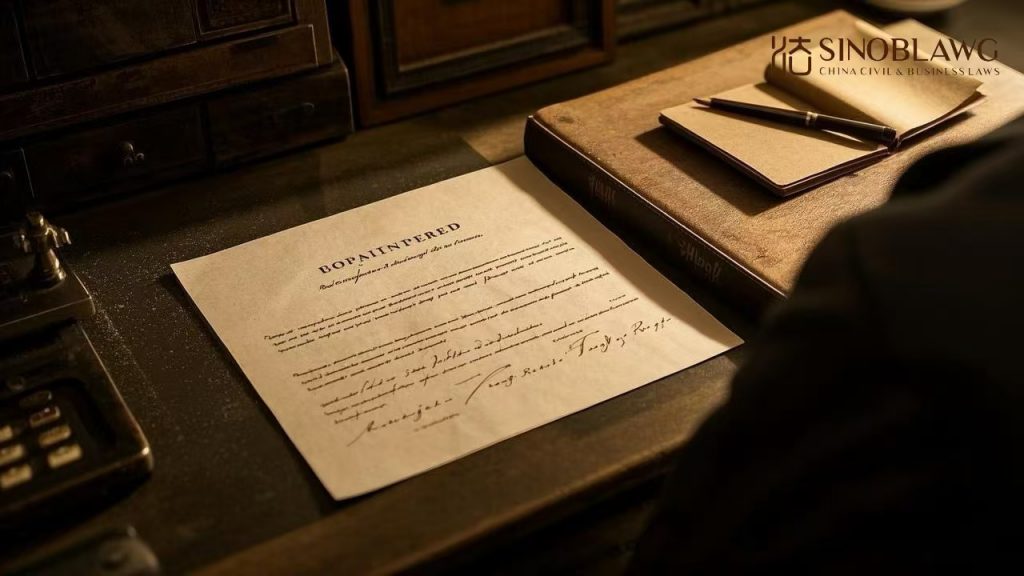Our team have been dealing with inheritance of estates in China for more than a decade, most of time, on behalf of foreign heirs or beneficiaries.
I. Facts of the Case
In a recent case, the decedent had two wills respectively dealing with estates in China and estates in USA. The China Will covers both personal and real properties mainly in Shanghai, and the American wills covers assets in USA. Since China doesn’t have probate proceeding, and as a matter of practice, we advise that in absence of disputes among heirs, we will draft estate distribution agreement to be signed by all heirs. Then we will proceed to update the titles of real properties in Shanghai, and finally sell them to divide the sale proceeds according to the terms of the China Will.
II. Questions Asked by Foreign Lawyers
At the same time, American estate is being sued by a third party, so the lawyer from USA acting on behalf of the executor of the American Will asked me a couple of questions that are pretty intriguing to me:
(1) if the China estates is distributed outright without going through probate proceeding, and the American estate is insolvent, will the executor (who is executor for both China and American wills) be liable to creditors in USA?
(2) if the American estate is insolvent, could the foreign creditors in USA go after the estates in China? Will China court declare insolvency of the estates?
III. China Laws on the Topic
Let us see what China law has to offer in this regard.
(1) Executor and Administrator
With the enactment of China Civil Code, estate administration is now officially carved out in the laws regarding estate inheritance. Before that, there was no concept of estate administrator.
Now, upon commencement of an inheritance, there is supposed to be an estate administrator(s) who can be either the designated executors in a will/testament or someone selected by the heirs or beneficiaries.
The duties of an estate administrator are to inventory the items of estates, take actions to protect the estates, deal with debts owed to or by the decedent, and distribute the estates pursuant to the wills or the laws, and other necessary actions connected with estate administration.
Article 1148 of China Civil Code makes it clear that an estate administrator shall perform its duties in accordance with laws and shall be held liable to heirs, beneficiaries or creditors for losses resulting from willful misconducts or gross negligence.
Here in this Article, the law doesn’t differentiate domestic creditors from foreign creditors, so a reasonable interpretation is that both domestic and foreign creditors are protected by this Article.
(2) Insolvency of Estates
Strictly speaking, there is no clear concept of estate insolvency under Chinese laws. An estate is not considered as a legal person, and thus, people don’t talk about estate insolvency in China. However, China laws on inheritance and succession have surely considered the scenario where the estate of decedent is not sufficient to pay off his or her inter vivos debts. In this case, the estates will be used to pay off those debts. China courts won’t declare the insolvency of the estates, and there are no rules governing administration of insolvent estates.
Article 1161 of China Civil Code provides that heirs shall be liable for such debts to the extent of the actual value of the estates and may voluntarily choose to pay off the debts in excess of the estates. Further, heirs are not liable for those debts if they waive their right to the estates.
(3) Foreign Creditors Go After China Estates
Both Article 1148 and 1161 of China Civil Code don’t limit decedent’s debts to domestic creditors. That connotes those foreign creditors shall be made available such protection as in the case of domestic creditors.
So foreign creditors whose debts are not discharged by decedent before death can now go after China estates of the decedents.
But who will be defendants if such foreign creditors take actions?
In foreign jurisdictions, estate administrators are the persons to serve as defendants in such a court proceeding, but in China, so far, the law is not clear on whether an estate administrator has the standing to sue and be sued during estate administration. In practice, a creditor will need to sue heirs/beneficiaries who are entitled to receive estates. This could be problematic when heirs are multiple and residing in different countries.
On the other hand, we believe China will further develop its law about estate administration and most likely, give legal standing to estate administrator to take part in estate-related court actions.
IV. Conclusion
Justice has much in common throughout the world. Under Chinese laws, foreign creditors shall have the right to go after estates in China left by their debtors. But the practice in estate administration in China is different from other jurisdictions and has yet to develop in the future.
If you have any query about this topic, please contact the blogger.








Comments